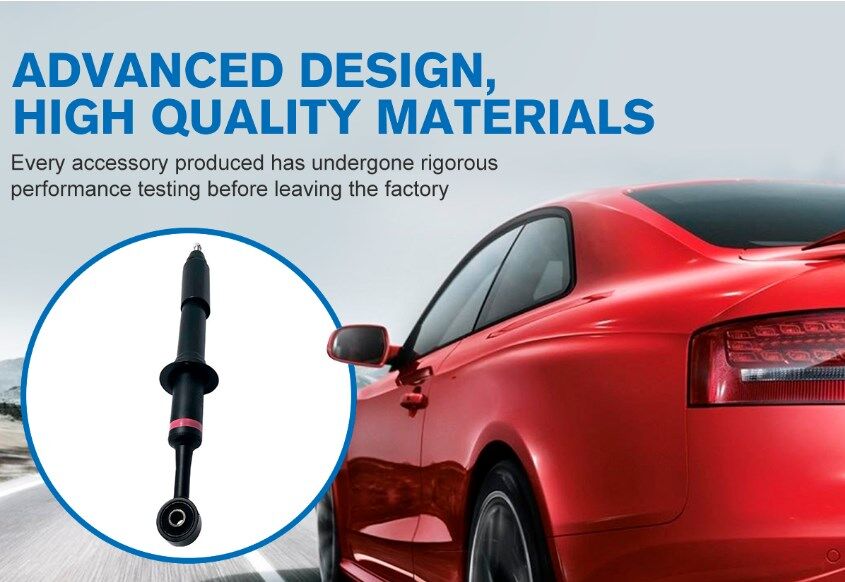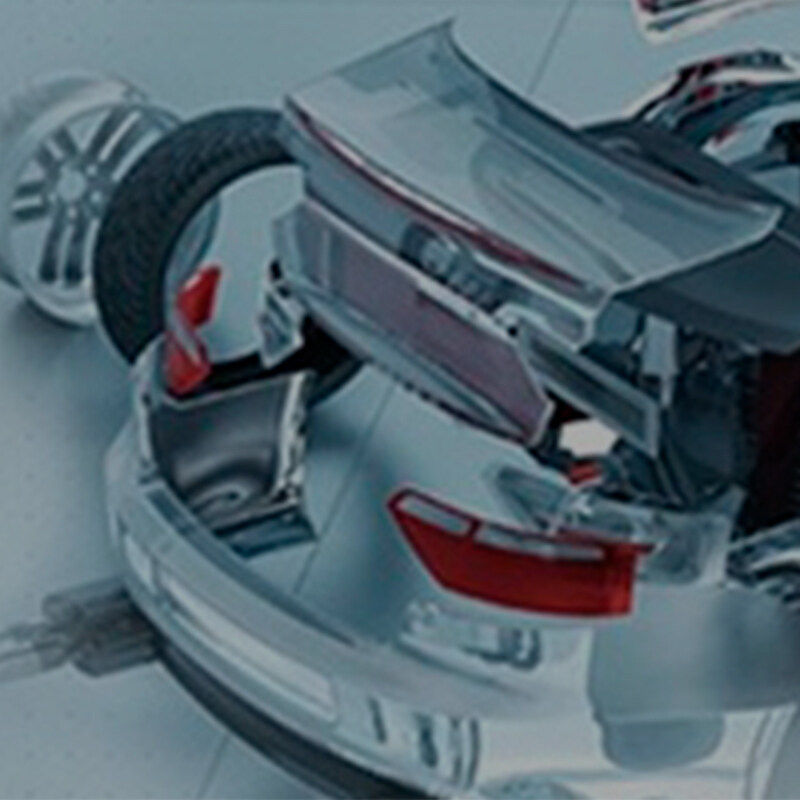Email format error
Email cannot be empty
Email already exists
6-20 characters(letters plus numbers only)
The password is inconsistent
Email format error
Email cannot be empty
Email does not exist
6-20 characters(letters plus numbers only)
The password is inconsistent

News

OEM Shock Absorbers vs Aftermarket: Finding the Perfect Balance
When it comes to maintaining or upgrading your vehicle, one critical component often comes into play: the shock absorbers. These unsung heroes of automotive engineering play a pivotal role in ensuring a smooth ride and maintaining control over your vehicle. However, when it comes time to replace or upgrade them, car owners are often faced with a decision: should they opt for OEM shock absorbers or aftermarket options? In this blog, we’ll explore the key differences between OEM and aftermarket shock absorbers, their pros and cons, and help you make an informed choice.
Understanding Shock Absorbers
Before diving into the debate, let's briefly understand what shock absorbers are and why they're essential. Shock absorbers are part of your vehicle's suspension system, designed to manage the impact between the vehicle's springs and the road. They work to control the bounce of your vehicle's suspension, providing a smoother ride by absorbing and dampening the energy from bumps and vibrations.
What Are OEM Shock Absorbers?
OEM stands for Original Equipment Manufacturer. OEM shock absorbers are those that are made by the same manufacturer that supplied the original parts when your vehicle was first built. Essentially, these are the "factory" parts that were designed specifically for your vehicle model.
Pros of OEM Shock Absorbers
Exact Fit and Compatibility: OEM shock absorbers are designed to match the specifications of your vehicle. This means they fit perfectly and work seamlessly with the other components of your suspension system.
Guaranteed Quality: Since OEM parts are made by the vehicle's original manufacturer, they typically meet stringent quality standards. This can provide peace of mind regarding their performance and durability.
Warranty Coverage: Many OEM parts come with a warranty that aligns with your vehicle’s original warranty. This can provide additional protection and assurance against defects or premature failure.
Cons of OEM Shock Absorbers
Cost: OEM shock absorbers are often more expensive compared to aftermarket options. The higher cost is partly due to the brand name and the fact that they are directly from the vehicle’s manufacturer.
Limited Choices: There’s less flexibility with OEM parts. If you’re looking for specific features or performance characteristics beyond the standard, you might find OEM options limiting.
Availability: Depending on the age and model of your vehicle, OEM parts might not always be readily available, especially for older or less common vehicles.

What Are Aftermarket Shock Absorbers?
Aftermarket shock absorbers are produced by companies other than the vehicle's original manufacturer. These companies create parts that are compatible with a wide range of vehicle makes and models, often with varying performance characteristics and features.
Pros of Aftermarket Shock Absorbers
Cost-Effectiveness: Aftermarket shock absorbers are generally more affordable than their OEM counterparts. This can be particularly appealing if you’re looking to save money on repairs or upgrades.
Variety and Customization: Aftermarket options come in a range of types and performance levels. Whether you're looking for heavy-duty shocks for off-roading or performance shocks for a sportier ride, there's likely an aftermarket option that fits your needs.
Performance Upgrades: Some aftermarket shock absorbers are designed to offer improved performance, such as better handling, increased comfort, or enhanced durability. This can be an attractive option if you’re looking to upgrade your vehicle’s ride quality or handling capabilities.
Cons of Aftermarket Shock Absorbers
Quality Variability: The quality of aftermarket shock absorbers can vary significantly between manufacturers. It’s crucial to choose a reputable brand to avoid potential issues with performance or durability.
Fit and Compatibility: While many aftermarket shocks are designed to fit a range of vehicles, there’s a chance they may not match the exact specifications of your vehicle. This can sometimes lead to installation issues or suboptimal performance.
Warranty Concerns: Aftermarket parts may come with varying warranty terms. It’s important to review the warranty details to ensure you’re covered in case of defects or premature failure.
OEM vs Aftermarket: Making the Right Choice
When deciding between OEM shock absorbers and aftermarket options, consider the following factors:
Your Budget: If cost is a primary concern, aftermarket shocks may offer a more affordable solution. However, if you’re willing to invest in the highest-quality components, OEM parts could be worth the extra expense.
Performance Needs: If you’re looking for specific performance enhancements or modifications, aftermarket shock absorbers provide a range of options. On the other hand, if you prefer to stick with the original setup, OEM parts will maintain the factory performance.
Long-Term Reliability: Consider how long you plan to keep your vehicle. OEM shock absorbers may offer better longevity and reliability if you’re keeping your vehicle for the long term, while aftermarket options could be a good short-term solution.
Vehicle Usage: How you use your vehicle can also influence your choice. For instance, if you frequently drive off-road, aftermarket shock absorbers designed for rugged terrain might be more suitable. Conversely, if you use your vehicle primarily for city driving, OEM shocks may suffice.
Conclusion
Both OEM shock absorbers and aftermarket options have their advantages and drawbacks. The right choice depends on your individual needs, preferences, and budget. OEM shock absorbers offer guaranteed fit and quality but come with a higher price tag. Aftermarket shock absorbers provide cost savings and performance options but vary in quality and compatibility.
By evaluating your specific requirements and considering the pros and cons of each option, you can make an informed decision that enhances your vehicle’s ride quality and overall performance. Whether you opt for OEM or aftermarket shock absorbers, the key is to choose a solution that aligns with your driving needs and ensures a smooth, comfortable ride.

